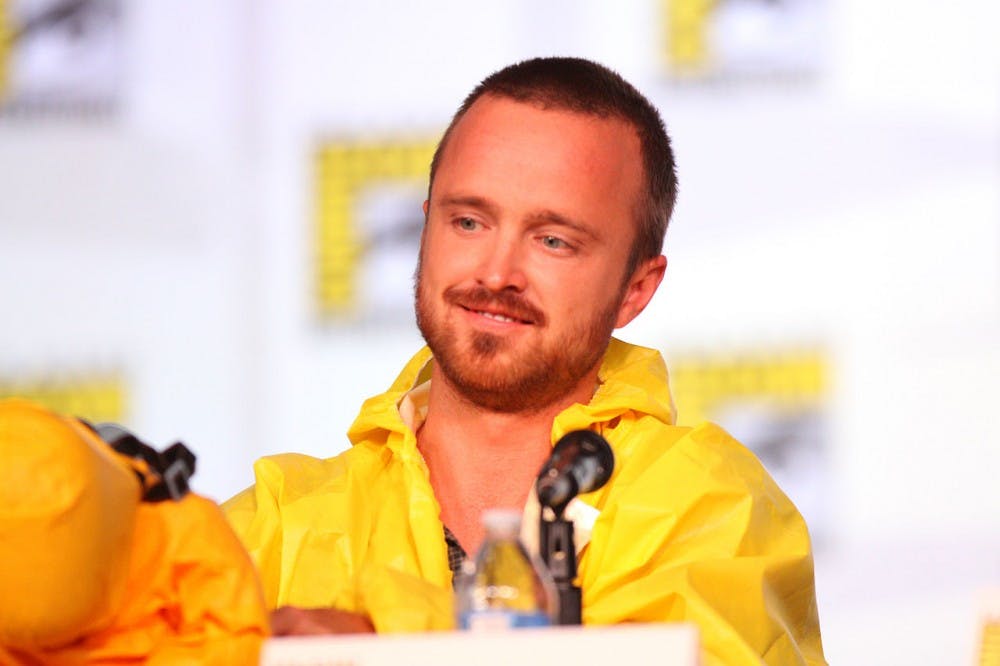Breaking Bad is widely considered one of the best TV shows of all time. Its creator, Vince Gilligan, took a great risk by releasing a follow-up movie, “El Camino: A Breaking Bad Movie,” this past Friday.
Fortunately, even as a halfhearted fan of the show, I loved it. Throughout, I was excited by the symbolism in the film and appreciated that Gilligan continued his story.
I haven’t watched Breaking Bad since the ninth grade when my entire family binge watched it. Ironically, my family members are the type of people who believe in the idea that life’s true equilibrium is a happy ending, as opposed to the possibility that life could turn irreversibly dark.
Consequently, I lost interest in the show as it progressed and never paid attention to the middle seasons. Only when my family was watching the last episode did I succumb to witness what many claim to be the “best TV show ending in history.”
Before the release of El Camino, I took the necessary steps to get ready for the movie release. I plowed through dense 20-minute YouTube recap videos and listened to one of my friends perform passionate scene reenactments that he believed could play a vital role in my understanding the follow-up.
For those who aren’t acquainted with Breaking Bad, the show primarily follows two main characters.
A former high school chemistry teacher turned methamphetamine cooker and powerful criminal, Walter White (Walt), is the one who essentially “breaks bad” and keeps going bad, committing various crimes — including murder — and becoming associated with dangerous characters as the series progresses.
Walt’s original impetus for manufacturing methamphetamine and becoming a drug dealer is his desire to secure his family’s financial future upon discovering that he had stage three lung cancer. His uncontrolled spiral down the dark life of a drug kingpin leaves him with a perfectly fitting dark ending: rejected by his family and dead on the floor of his meth lab.
Another major character is Jesse Pinkman, the protagonist of El Camino. A high school dropout and low-level criminal, Pinkman attempts to “break good” and escape from his criminal life, but ultimately fails to do this as a result of his ties with Walt. Walt later confesses responsibility for the death of Pinkman’s girlfriend, and Pinkman himself is taken into captivity.
However, by the last episode, Pinkman is finally liberated. In the final moments of the show, he laughs and cries hysterically as he drives away in the car that is given the name “El Camino.”
In continuity with that iconic ending, El Camino could therefore be considered Jesse’s movie.
The original TV series was notorious for its masterful sense of foreshadowing. El Camino begins with a flashback to a conversation between Pinkman and Mike (a dead but former colleague of Pinkman and Walter’s), where Mike tells Pinkman about the secret to starting a new life after his run with illicit drugs.
“If I were your age, starting fresh… Alaska. It’s the last frontier. Up there, you can be anything you want,” he said.
Hoping to finally escape his criminal identity, Pinkman travels from New Mexico — where law enforcement is swarming to find and arrest him — to a peaceful new life in Alaska using his criminal abilities. At the same time, he proves that deep down, he isn’t a ruthless criminal.
Several close-calls and action sequences prevent the audience from ever being too sure that Pinkman will ever get a happy ending. In each tense turn of events, Pinkman must choose the most moral course of action. These actions range from internal challenges to overwhelmingly real and physical barriers.
Over the course of the movie, Pinkman’s character feels extremely genuine, thanks to the stellar acting of Aaron Paul. Following the release of El Camino, Pinkman’s performance has received widespread acclaim from film critics; after all, he won Emmy Awards for his work on Breaking Bad.
Pinkman sincerely expresses gratitude towards his friends, Skinny Pete and Badger, who offer their hospitality. His face is filled with remorse as he realizes the stress and disappointment he has put his parents through.
He even displays a level of respect towards Ed, who aids people in creating new identities, albeit with some reluctance. Pinkman also refrains from hurting those he doesn’t need to. He gently and carefully lets a bug run through his hands before a scene in which he is forced to act with brutality.
In a flashback to a scene with Todd, who was responsible for Jesse’s enslavement by neo-Nazis in Breaking Bad, Pinkman acts with immense mercy when given the opportunity to kill Todd and finally have a chance at attaining his freedom.
Thankfully, within El Camino, Jesse manages to “break good” and deservedly receives his happy ending. While escaping his criminal identity and making it to the peaceful haven of Alaska, he proves that he holds a moral compass, minimizing harm to others along the way (although there still is plenty of harm done).
Though I may always want to see that life’s equilibrium ends up in a happy ending, Breaking Bad and El Camino make it clear that it is how one acts in life that determines whether their ending is happy or not — a more accurate, but still reassuring truth.





